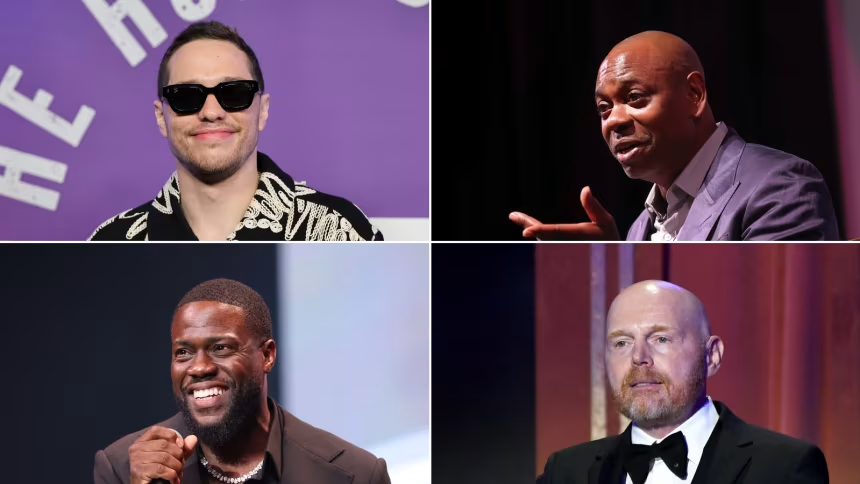The Riyadh Comedy Festival, which kicked off on September 26 and will run until October 9, 2025, in Saudi Arabia, has become the focus of heated debate after several prominent American comedians signed on to perform. The event, spearheaded by the Saudi General Entertainment Authority, is presented as part of the Vision 2030 initiative aimed at diversifying the kingdom’s cultural scene. Organizers have described it as one of the largest comedy showcases in the world.
Among the star-studded lineup are globally recognized names such as Dave Chappelle, Kevin Hart, Bill Burr, Pete Davidson, Aziz Ansari, Whitney Cummings, and Jimmy Carr. While the gathering promises big laughs, critics—including fellow comedians, human rights advocates, and activist organizations—accuse the performers of providing cover for a government with a troubling human rights record. Detractors argue that the scope, timing, and high-profile nature of the festival are less about comedy and more about rebranding Saudi Arabia’s international image through entertainment.
Groups such as Human Rights Watch, Democracy for the Arab World Now, and the Human Rights Foundation have led the opposition. They point to longstanding allegations against Saudi authorities, ranging from stifling dissent and curbing free speech to imprisoning dissidents and silencing journalists. According to these organizations, by participating in the festival, comedians risk being used as instruments in a public relations strategy designed to overshadow these abuses without addressing them.
In response, some comedians have defended their decision to appear. They argue that bringing comedy to a conservative environment could serve as a cultural bridge. Others claim that art and humor should transcend politics, while some point to parallels with freedom of expression issues in the United States. Financial motivations are also acknowledged as part of the draw. Yet within the comedy community itself, not everyone is supportive. Comedians including Marc Maron, David Cross, Shane Gillis, and Atsuko Okatsuka have either declined invitations outright or criticized colleagues for agreeing to perform under restrictive conditions.
Contract details have added further controversy. Reports suggest some agreements explicitly ban performers from making jokes about Saudi culture, religion, the royal family, or political leadership. For many critics, these restrictions highlight the limits placed on genuine expression and underscore concerns that the event is more about optics than openness.
Adding to the controversy is the festival’s timing. It coincides with the anniversary of the 2018 killing of journalist Jamal Khashoggi, an event that drew global condemnation of the Saudi government. For human rights advocates, this overlap intensifies claims of “whitewashing.” They have called on participating comedians to use their platform to highlight issues such as repression, censorship, and the imprisonment of dissidents, rather than remain silent and complicit.
The uproar has exposed a deep rift over the intersection of comedy, celebrity influence, and ethical responsibility. To some, international comedy festivals offer opportunities for cultural exchange, joy, and subtle challenges to societal norms. To others, the lure of prestige and money cannot outweigh the risk of legitimizing authoritarian practices. How the participating comedians handle this scrutiny—whether by speaking out, adapting their material, or rejecting similar offers in the future—may shape not only their reputations but also the way such global entertainment ventures are judged moving forward.




